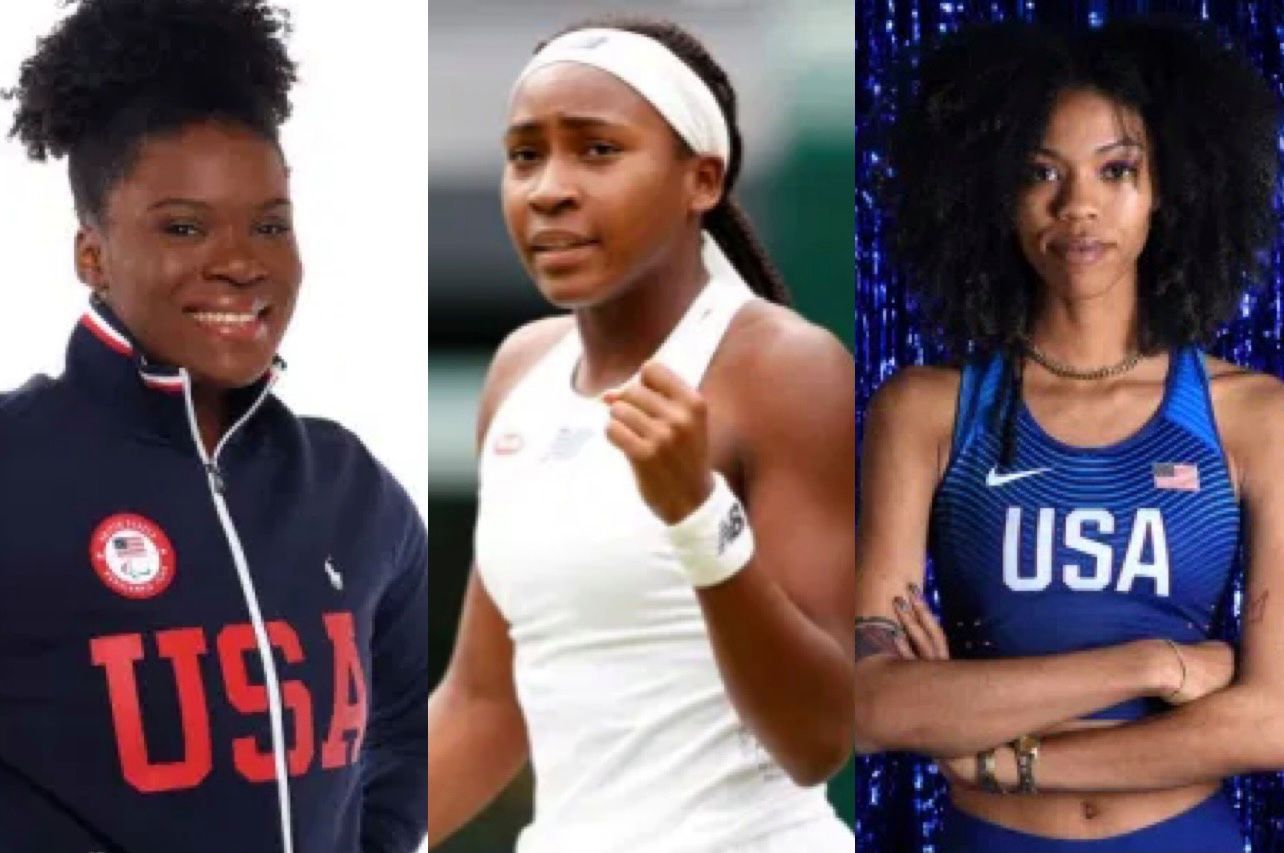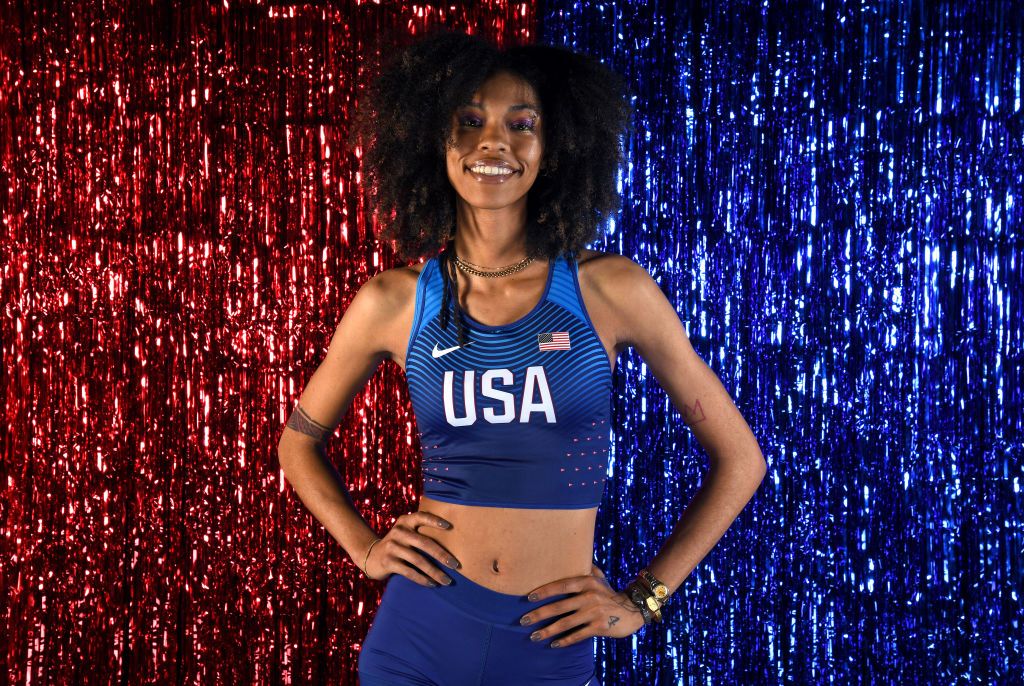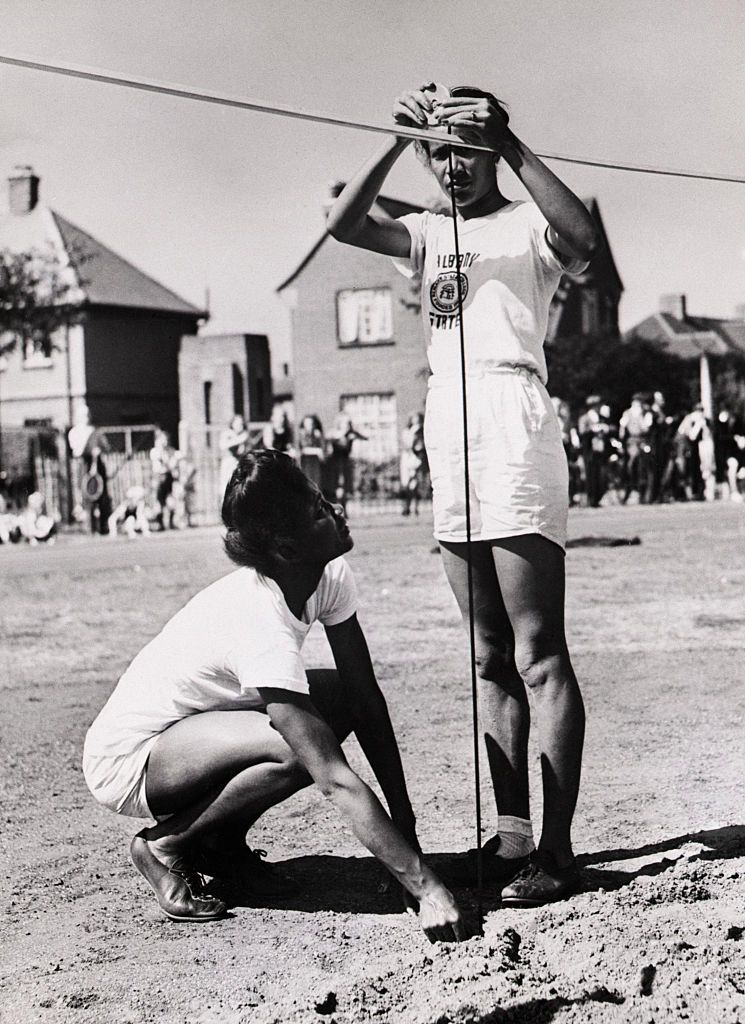
Source: Harry How/ Steven Paston / Getty
The Tokyo Olympics began July 23, after a one year delay due to a worldwide Pandemic brought on by the coronavirus. If anything, the delay could be seen as an opportunity to get in an extra year of practice and become great. You should already know MADAMENOIRE is “rooting for everybody Black.” This year’s summer Olympics are chock full of great Black athletic talent—particularly the women.
Still, it may be hard to weed out those you want to cheer for, as the Olympics features 28 sports of the course of two weeks. Finding a single Black person let alone a woman might put folks to task. We laid out several Black women we’re rooting for today alongside their athletic counterparts of yesterday—women whose shoulders they stand on in their respective sport.
Track and Field is one of the widest ranging sports represented in the Olympics. The sport breaks down into multiple disciplines: sprints, long jump, distance running and hurdles are just a few. Vashti Cunningham is looking to make her mark in the high jump while Alice Coachman has not only made her mark as a high jumper—she opened the door for Black women in the Olympics.
Vashti Cunningham

Source: Harry How / Getty
Vashti, daughter of former NFL Player Randall Cunningham, is making a name for herself — a name that stands apart from her father’s. Cunningham was born and raised in Las Vegas, Nevada. She graduated Bishop Gorman High School Class of 2016 and trained for the Olympic trials while a high schooler. Her relative inexperience and youth is a double-edged sword.
While Cunningham was in peak shape she was not at peak maturity. Cunningham says as much in a recent interview with Well+Good:
“I was 18 when I went to the last Olympics and now I’m 23,” Cunningham said “And so I feel like a lot of it has been just growing and getting older and maturing.”
She continued: “And getting a stronger relationship with God has been a big part of it for me because when I was young, I would just let things affect me and I wasn’t really super tapped in. But now that I’ve gotten older and understood how important it is, just giving it more of myself, I’ve seen the results.”
Cunningham is now tapped in and ready to take her performance to the next level. Her faith in God has become a large part of strength and motivation. Cunningham also credits her father — who is her coach — with helping her build strength and become better.
Cunningham is the youngest Track and Field participant — since 1980 — to qualify for the Olympics in the high jump in 2016. At 18-years-old, Cunningham went to the Rio Games and competed against veterans. Cunningham did not win medals that year but ranked 13th overall.
Vashti’s brief performance in Rio, was only the beginning of her professional career, Since her appearance there Cunningham has been decorated with one gold medal, one silver medal, and one bronze World Championship Medal since her last Olympic appearance.
She is now a contender for this year’s games in Tokyo. Cunningham set a personal record of 6 feet, 7.5 inches, in this year’s qualifications. Too, Cunningham has complete faith in her ability to win stating:
“I do plan on peaking at the Olympics.”
Alice Coachman

Source: Bettmann / Getty
Alice Coachman is the first woman to earn an Olympic Gold Medal. She kicked open the door for Black women hurdlers, like Vashti Cunningham. Coachman was born in 1923 in Albany, Georgia. Coachman’s parents did not take much interest in her athletic abilities, nor did they lend much support. Living through the Great Depression and coming out on the other side may have influenced how they viewed recreational sports. Coachman was not deterred. She practiced without the benefit of training equipment. Coachman used her environment and everyday use items to create what she needed to train — such as the dirt roads she ran on with bare feet to practice her skill. She also used two sticks and a large rope to create a makeshift highjump. Coachman’s imaginative practice sessions paid off and she began to break high jump records while still in high school.
Coachman attended Tuskegee University where she was a Basketball star as well as a Track and Field star. As a basketball player, Coachman led her college team to three championships. Coachmen not only competed, she broke records. Coachman is a multi-sport phenom winning national championships in the 4×100 meter relays, 50 meter and 100 meter sprints.
Eventually, her success at the college level was recognized and Team USA realized that her recruitment could only enhance their chance of victory. They were right. In 1948, Coachman’s victory happened in London at the 1948 Olympics. As an Black woman pre-Civil Rights Movement, Coachman reached the pinnacle of success when she set the Olympic high jump record of at 5 feet 6 1/8 inches. Coachman was the second Black woman to earn a medal in an Olympic event and the first woman to ever earn a Gold Medal in an Olympic event.
Coachman continued breaking down barriers for Black women, she became the first to sign an endorsement deal with Coca-Cola. The world class athlete went from running on dirt roads and jumping with bare feet to being awarded a Gold medal by the King at the London Olympics. Ms. Coachman owned her achievements and contributions. In 1996, the pioneer told The New York Times:
“I made a difference among the blacks, being one of the leaders,” “If I had gone to the games and failed, there wouldn’t be anyone to follow in my footsteps.”


